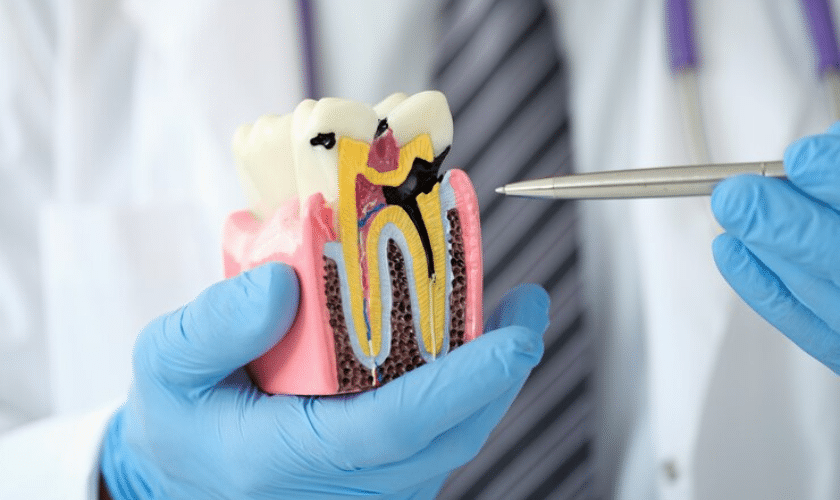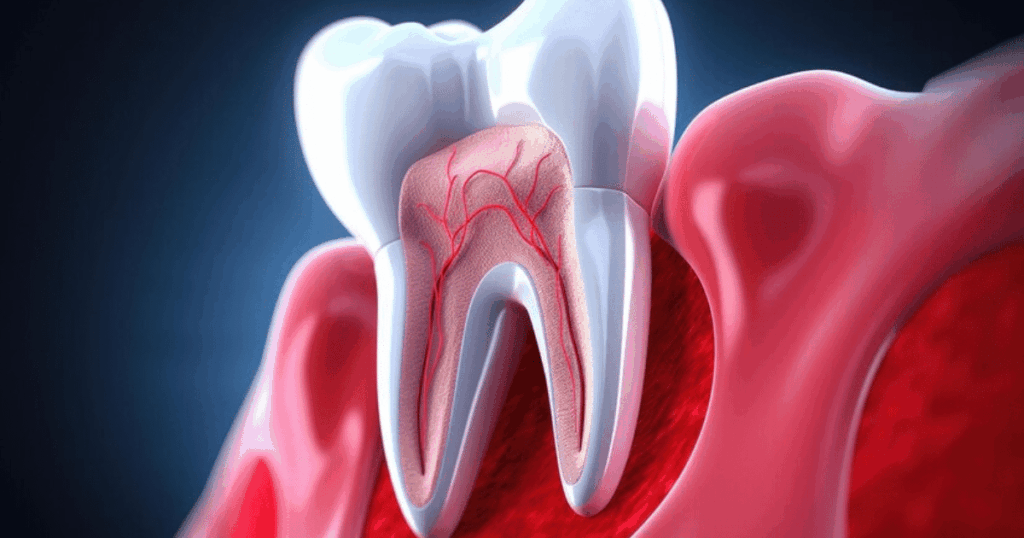
Root canal infections can be a source of significant discomfort and dental problems if left untreated. Recognizing the signs of a root canal infection is crucial for prompt intervention and effective treatment. In this comprehensive guide, we’ll explore the vital signs of root canal infection that you should take seriously, along with preventive measures to maintain optimal dental health.
Understanding Root Canal Infections:
A root canal infection occurs when bacteria infiltrate the innermost part of the tooth, known as the pulp. The pulp contains nerves, blood vessels, and connective tissue, and when it becomes infected or inflamed, it can lead to severe pain and other symptoms. Root canal infections typically develop as a result of untreated tooth decay, trauma to the tooth, or advanced gum disease.

Vital Signs of Root Canal Infection:
- Persistent Pain: One of the hallmark signs of a root canal infection is persistent or throbbing pain in the affected tooth. The pain may worsen when biting or chewing and may radiate to other areas of the face or jaw. Over-the-counter pain relievers may provide temporary relief, but the pain often returns as the infection progresses.
- Sensitivity to Temperature: If you experience heightened sensitivity to hot or cold foods and beverages, it could be a sign of a root canal infection. The damaged pulp inside the tooth becomes more sensitive to temperature changes, causing discomfort when exposed to hot or cold stimuli.
- Swelling and Tenderness: Inflammation and swelling around the affected tooth are common symptoms of a root canal infection. The gums may appear red, swollen, and tender to the touch, and there may be a noticeable lump or abscess near the tooth. In some cases, the swelling can spread to other parts of the face or neck.
- Discoloration of the Tooth: A tooth that has become infected may change color, appearing darker or discolored compared to surrounding teeth. This discoloration is a result of damage to the pulp and can indicate advanced decay or infection within the tooth.
- Prolonged Sensitivity to Pressure: Another vital sign of a root canal infection is prolonged sensitivity to pressure. If you experience discomfort or pain when biting or applying pressure to the affected tooth, it may indicate damage to the pulp and the need for root canal treatment.
- Bad Breath or Foul Taste: As a root canal infection progresses, bacteria multiply and produce toxins that can cause bad breath or a foul taste in the mouth. This unpleasant odor or taste may persist even after brushing and flossing and can be a sign of advanced infection and decay.
- Pus Drainage: In severe cases of root canal infection, pus may accumulate in the gum tissue near the affected tooth, leading to drainage or discharge. Pus is a sign of active infection and requires immediate attention from a dentist to prevent further complications.
Preventive Measures and Treatment Options:
Preventing root canal infections starts with practicing good oral hygiene habits, including brushing twice a day, flossing daily, and scheduling regular dental check-ups and cleanings. Additionally, avoiding sugary foods and beverages, wearing a mouthguard during sports activities, and seeking prompt treatment for dental issues can help prevent root canal infections.
If you experience any of the vital signs of a root canal infection, it’s essential to seek prompt evaluation and treatment from a dentist. Root canal therapy, also known as endodontic treatment, is a common procedure used to remove infected pulp tissue, clean the root canal system, and seal the tooth to prevent further infection. In severe cases, extraction of the affected tooth may be necessary to prevent the spread of infection to surrounding teeth and tissues.
Root canal infections can cause a range of symptoms, from persistent pain to swelling and bad breath. Recognizing the vital signs of a root canal infection is essential for early detection and prompt treatment to prevent further complications. By practicing good oral hygiene, seeking regular dental care, and addressing dental issues promptly, you can reduce the risk of root canal infections and maintain a healthy, vibrant smile for years to come.



